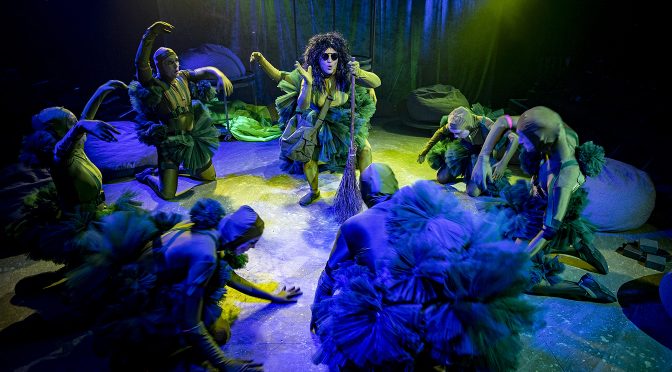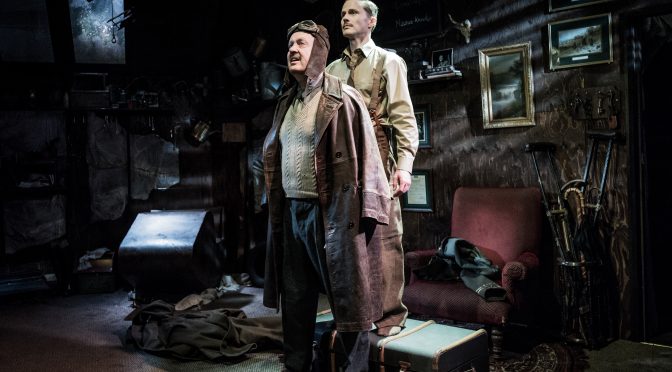If quirky is what you want Mark Hollmann and Greg Kotis’ show can’t be beaten. A “bio-historical musical” set in primordial soup, its characters really are yeast and the conflict revolves around how they evolve. So, top marks for crazy. The score tries hard and the production is enthusiastic. But the musical is, ultimately, just an oddity.
Credit where it’s due – the ideas are fine. With hints of Greek tragedy and Shakespeare, the oldest yeast (a king, of course) battles against change. As the organisms encounter greed, ambition and love – for the first time in history – the chance to examine abstract concepts is embraced.
Regrettably, adding meta-theatrical touches proves distracting and predictable. It leads to a weak role for a narrator character, who comes too close to a very odd schoolteacher despite valiant efforts from Sarah Slimani. Being both self-consciously silly and serious is an interesting mix, but not a successful one. The joke of taking such absurdity as profound ends up repetitive.
A focus on romance (which buoys the second act) allows the performers who become the first multi-cellular organism (Stephen Lewis Johnston and Hannah Nuttall) a chance to shine. But despite plenty of spirit the show drags. The originality is only single-cell deep – we always know what’s coming next and it doesn’t come quickly enough.
Hollman and Kotis are too keen to tell a “dark tale”. Maybe the fear is that serious questions are needed to justify the bizarre premise? Maybe it’s part of the joke? Either way, the best of the humour comes from the production. There’s strong work from Shane Convery and Mari McGinlay as ‘the Wise’ and ‘the Sly’ as well an unwitting accomplice to courtly intrigue, played by Marisa Harris. All three performances are committed.
It’s director Benji Sperring’s work that shows Yeast Nation in the best light – inventive touches that add charm and fun too often missing from the script and lyrics. Lucie Pankhurst’s work on movement is strong, suggesting amoebas in a fashion that proves oddly hypnotic. In addition, while it probably shouldn’t – and while I can’t explain why – setting the whole thing in Yorkshire adds immeasurably. After all, why not? The accents become the anarchic touch the piece itself craves for but misses.
Until 27 August 2022
Photo by Claire Bilyard


